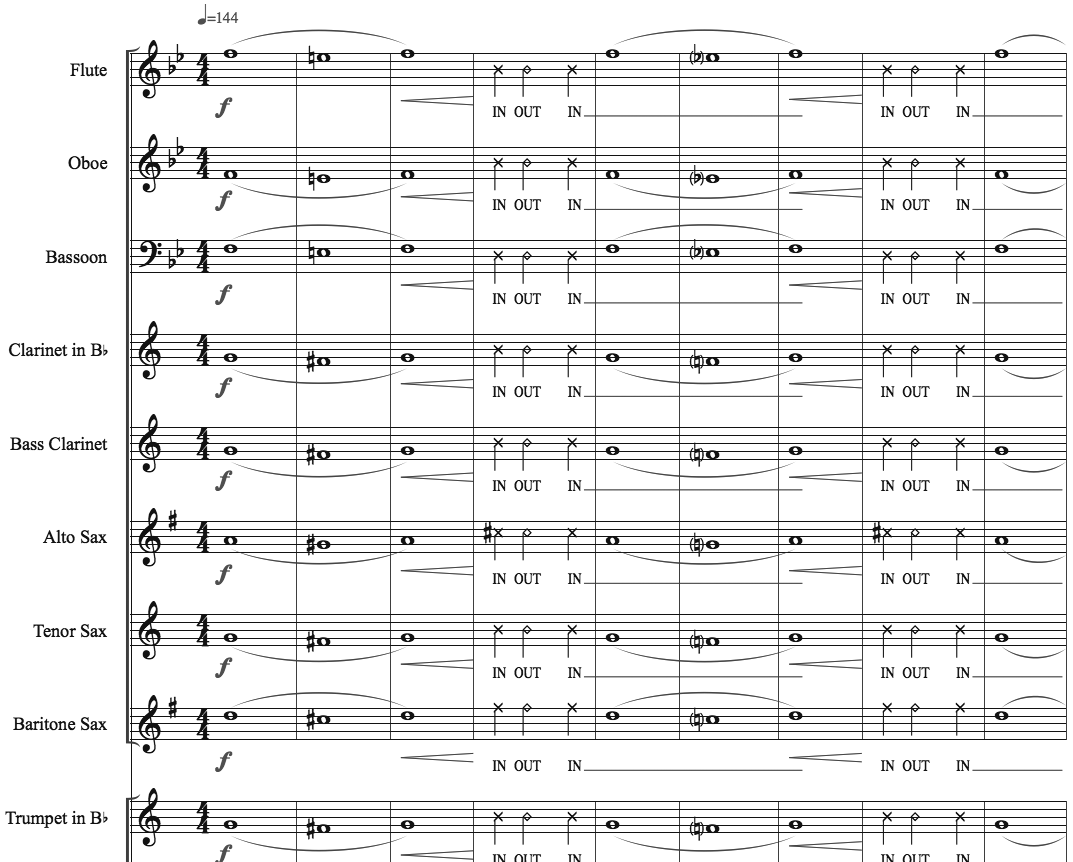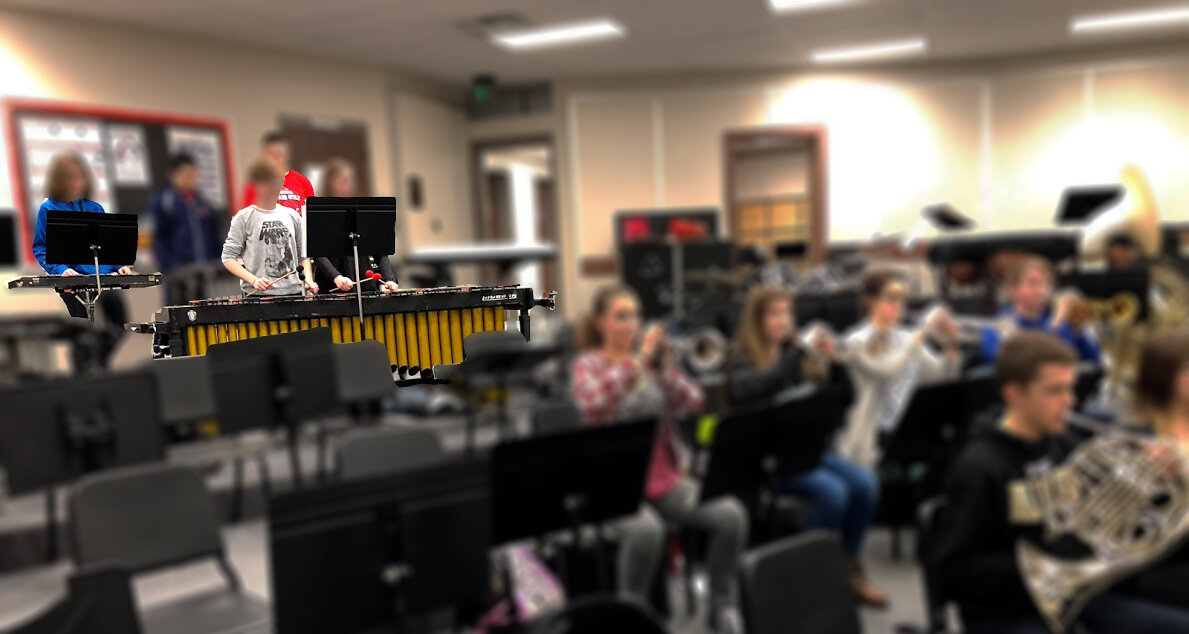In-Depth Read: "Game On" in your Concert Warm-ups!
Hello, all! It's been quite a while since my last "5-Minute Read," and I figured it was high-time to again write about some of my experiences and thoughts in the band world. Thanks for your patience and support!
I'm certain that we're all into the full swing of our concert band preparations this semester, and we are faced with that constant question: how, what, how long do we warm-up our concert ensembles? The answers to these questions vary greatly depending on each ensemble's available class time, instrumentation, and ability level. But one thing is clear: the vast majority of us, director and musician alike, do not look forward to the daily warm-up. In fact, some of us outright dread it. Why? Because concert works are fun, and scales, arpeggios, and chorales aren't. That may be an oversimplification and a blanket statement, but I'm willing to stand by it. For students, daily warm-ups are the bitter medicine they have to endure before they get to enjoy "real" music. This doesn't make it any fun for the director either!
This problem has all sorts of ramifications. First, if the warm-up is uninteresting or not engaging to the students, they will certainly not give their best effort. Secondly, since the warm-up comes at the beginning of class, this lack of energy and effort can "poison the waters" for the remainder of your class time, negatively affecting how your students play throughout all portions of the rehearsal. So, how do we fight this problem? The answer is "Game on!"
Game On!
I know it can sound cliché, but applying games, challenges, and competition to your warm-up process can energize your warm-up, your students, and yourself. Here are some techniques you can use to get your student-musicians to bring their best "game" to warm-up!
- Are you Bored?
- Here's the first and most important test: are you, the director, bored during the warm-up? This is the biggest warning sign that you have an ineffective beginning to your rehearsal. If you ever find yourself bored, then remember this simple rule for yourself and for your students: "If it's boring it must be simple, and if it's simple it must be easy, and if it's easy it must be perfect. And once it's perfect, let's make it harder." Try these tricks below to do just that!
- Attacks and Releases at Strong Volume

- Don't let your students start rehearsal with an anemic sound and airstream. Start with playing forte! Long tones, at full volume, are a great way to get your students lungs moving and resonating their instruments with rich sounds. Make sure they're emptying their lungs before breaths, forcing them to take full inhalations.
- Get Them Singing (and buzzing) Loud and Proud!
- Dialing in pitch, and breaking through your students' lethargy, can be helped by having them stand up to get the blood flowing. Have them stand to sing through your chorales. Not loud and strong? Stop and start again until you get the effort and volume you want. Have the woodwinds play the chorale while your brass players try to "outbuzz" them in volume. Tell your woodwinds not to make it easy on those brass!
- Push Technique to the Limit
- Scales are more than scales: they're the first technical challenges are students face. So don't let them get comfortable playing them in easy tempos. Push them to their limits with progressively more challenging speeds on those scales.
 Appeal to their Competitive Side
Appeal to their Competitive Side
- Have individual students play for the class everyday! Work your way around the room throughout the week. Don't just let your strongest performers be the only one's that play, but they can certainly use this time to "show off." Cultivate a classroom where your strongest performers receive adulations from their peers, while your weakest performers get encouragement and positive reactions to their efforts.
- With all of the technology at our fingertips weekly recording or SmartMusic assignments of scales, at set tempos, can be used to create a leaderboard of top performers in your class, with rewards and privileges you determine for your top performers. you don't have to show everyone's rank, but you can certainly show the top performers! Anything from candy, to gift cards, to bus loading priority can be used to motivate these high achievers.
 Don't Leave Out Your Percussionists!
Don't Leave Out Your Percussionists!
- Don't let your percussionists just sit there through the warm-up process. They need to know how to play their scales on the mallets. But beyond scales, what about rudiments? Rudiments can be played on snare drums, practice pads, and on mallets! Paradiddles, flam-taps, and more, at faster and more challenging tempos, can be employed during scale warm-ups.
- As always, make sure you set aside enough time towards the end of warm-ups for your percussionists to prepare all equipment needed for the works you'll be rehearsing.
We're never going to enjoy scales, chorales, and long tones as much as playing a great piece of band literature. But that doesn't mean we have to make warm-ups such a chore! Try these techniques with your band today and you'll find that not only does their sound and technique improve, but you and your students will begin to look forward to warm-ups, and your class time will start out on a much more positive and energetic footing!

